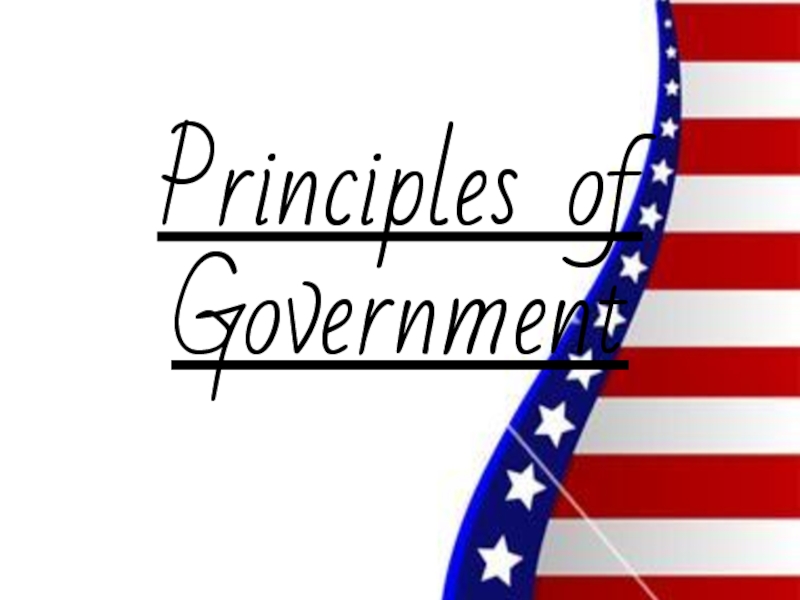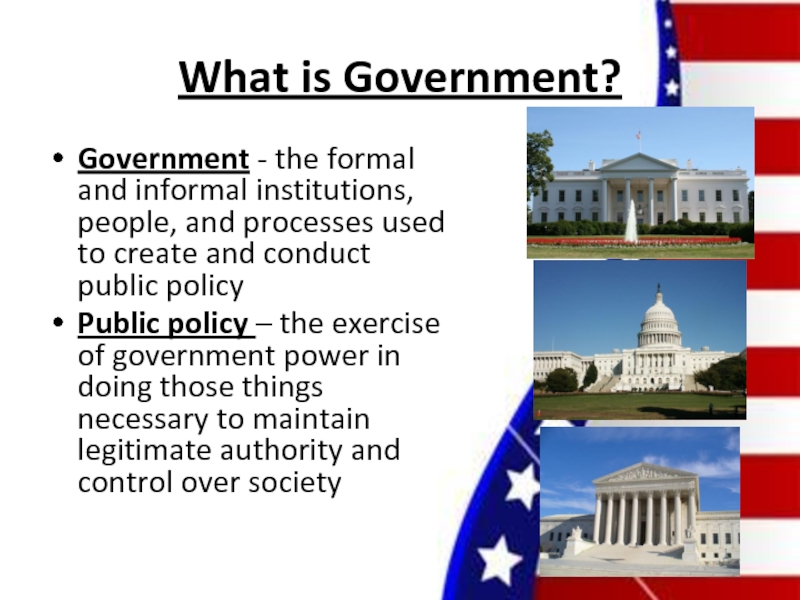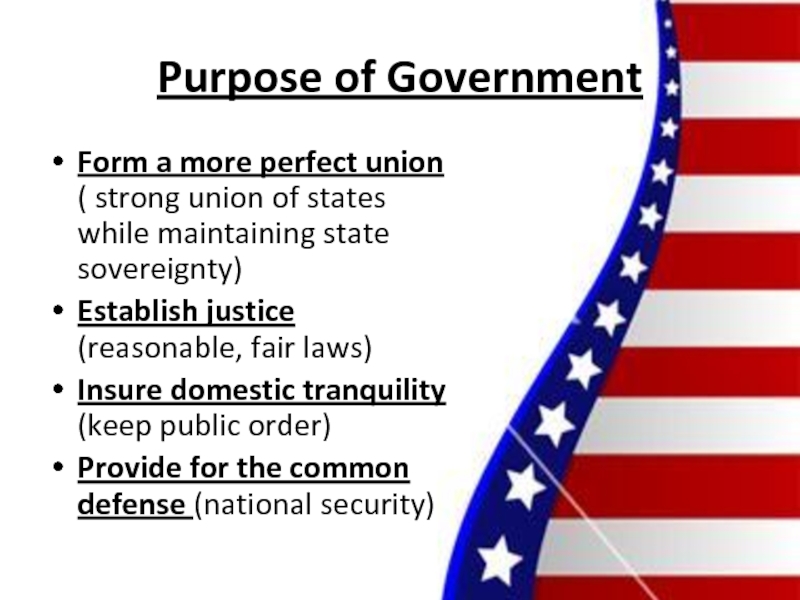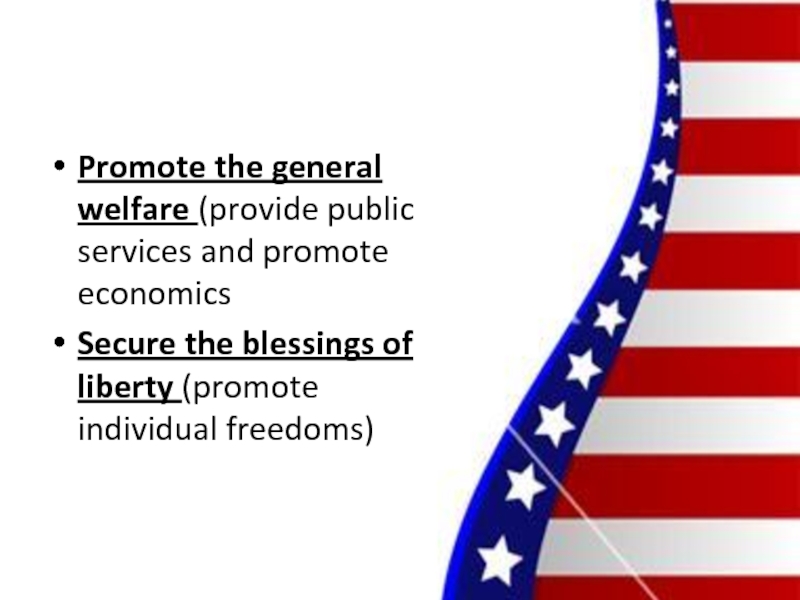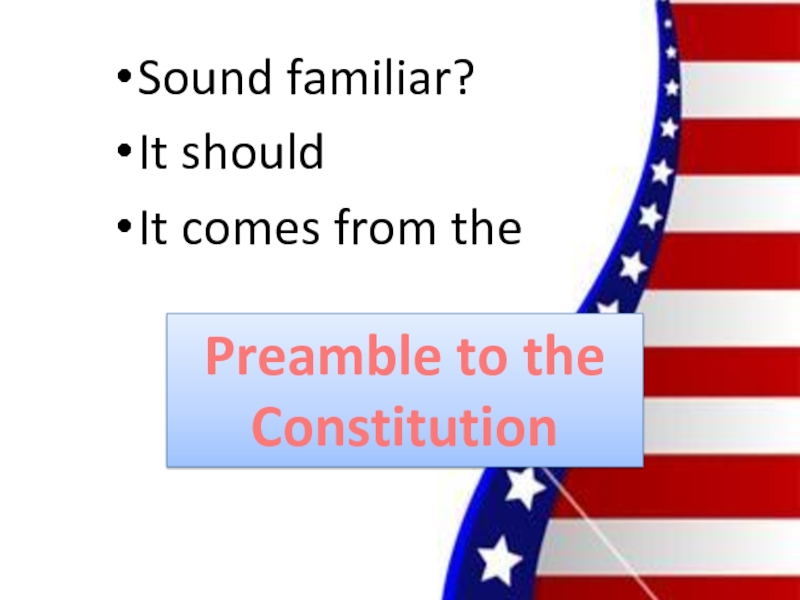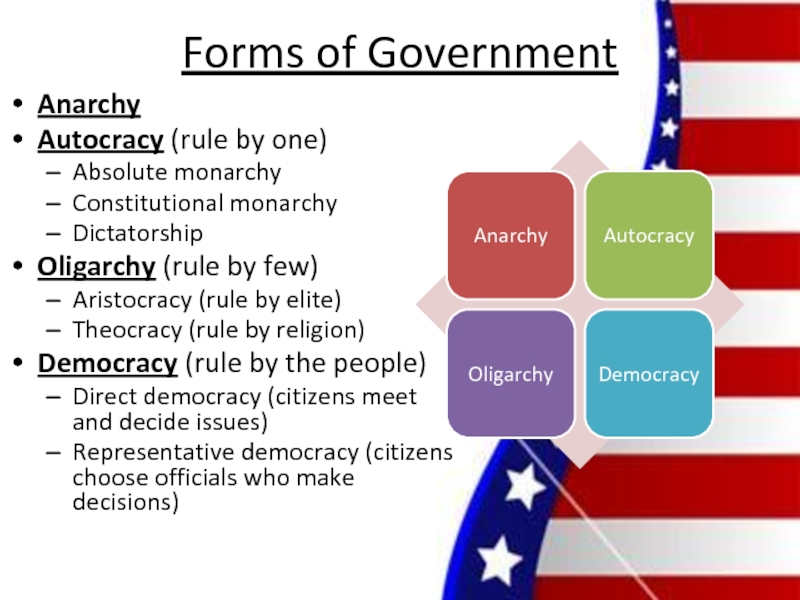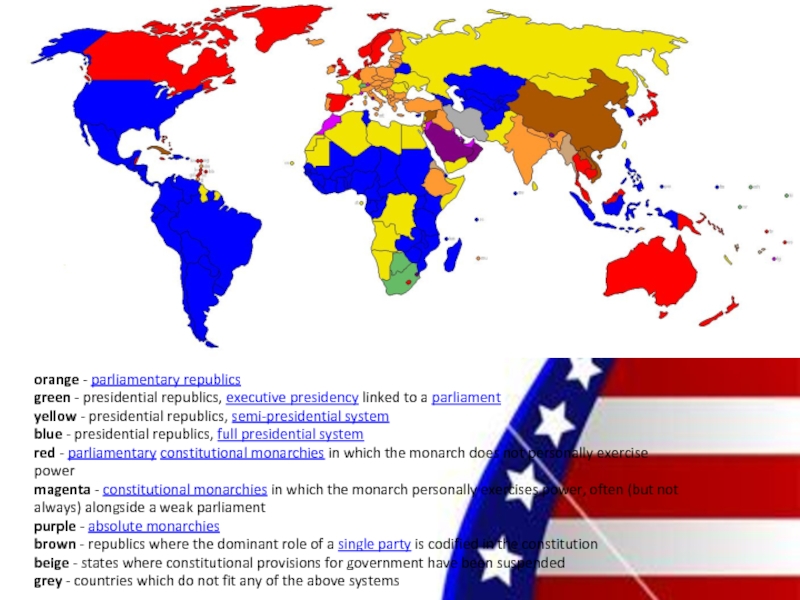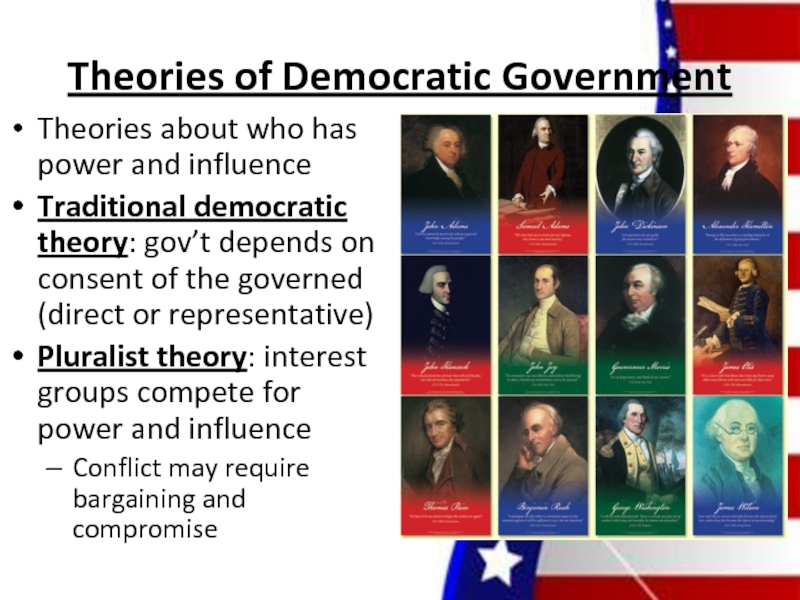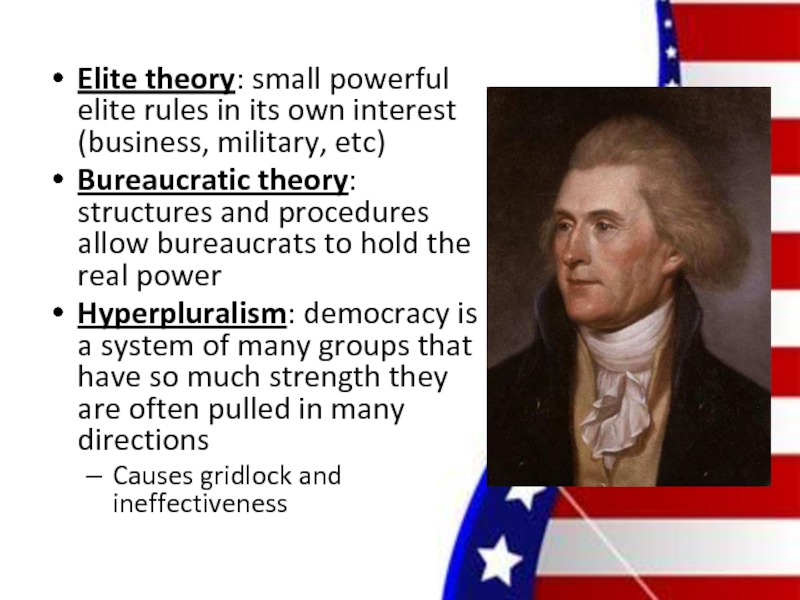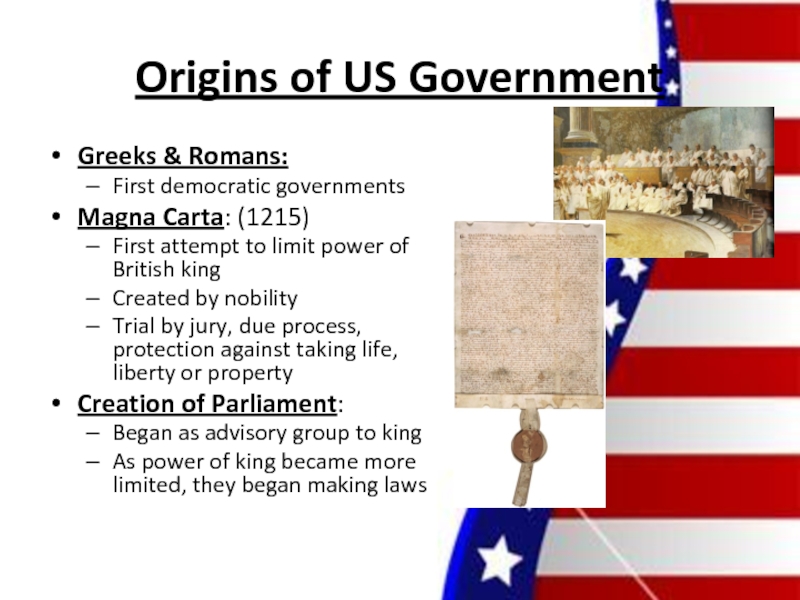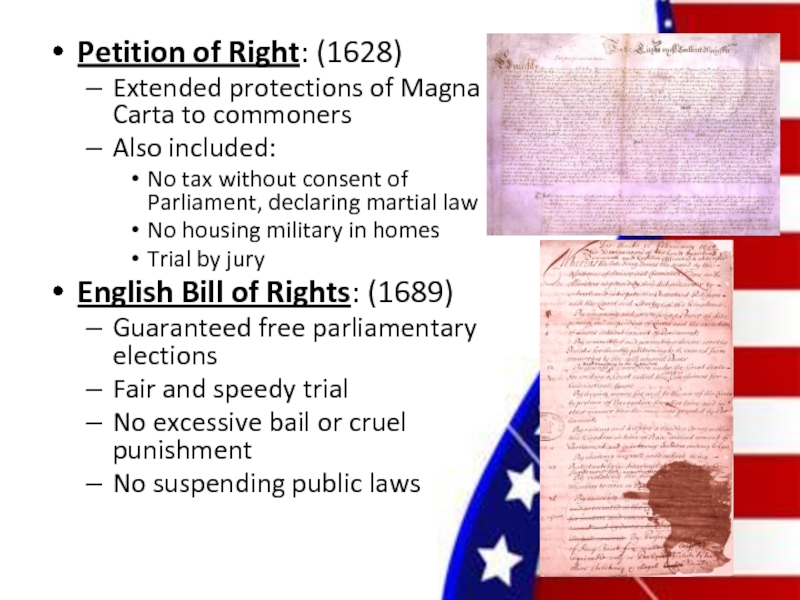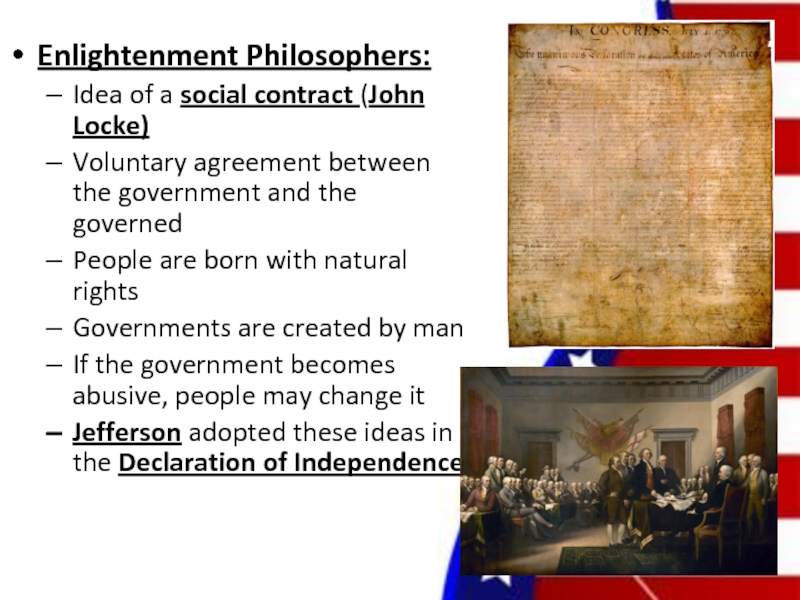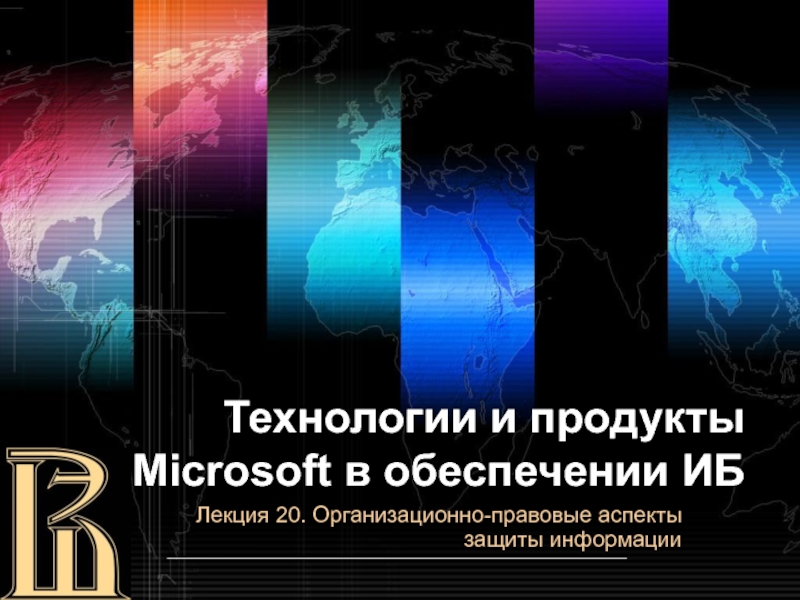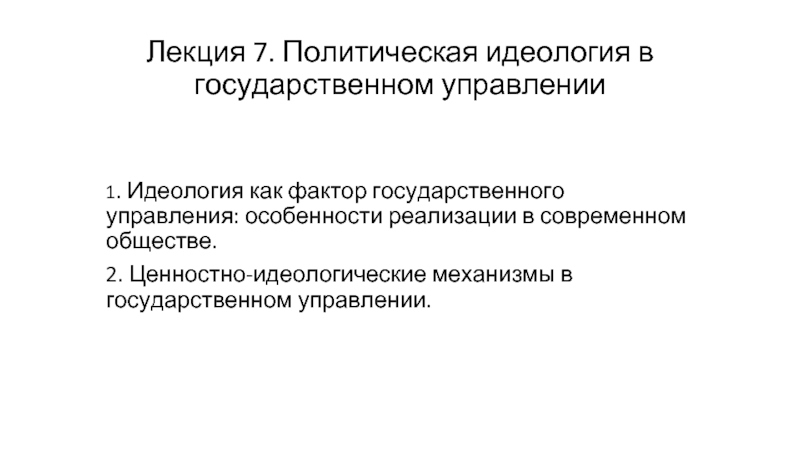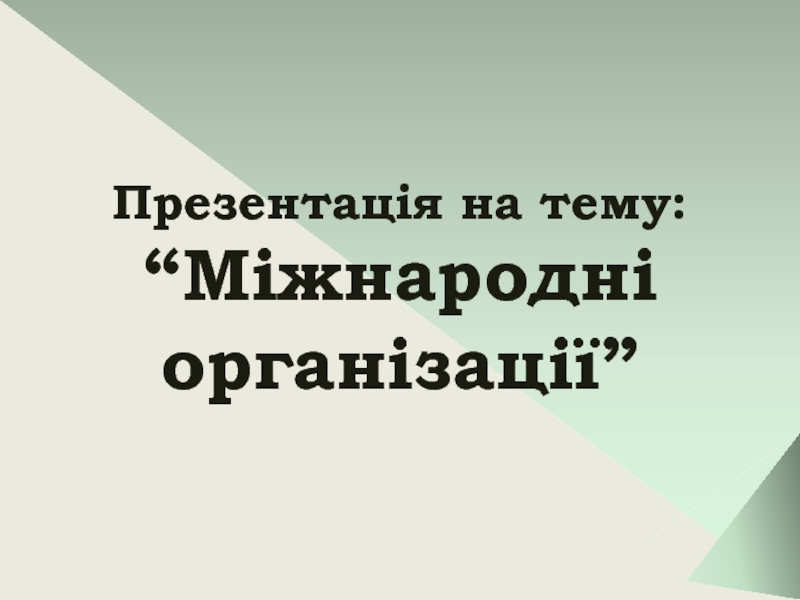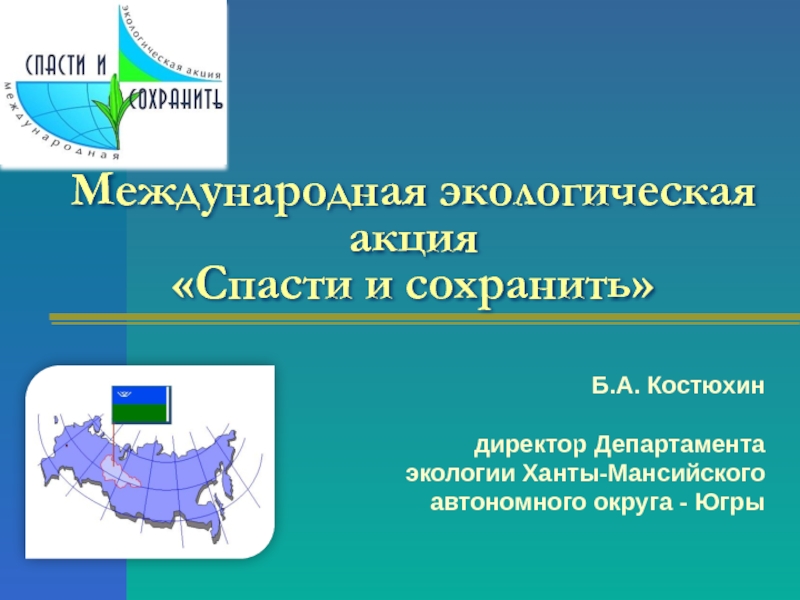- Главная
- Разное
- Дизайн
- Бизнес и предпринимательство
- Аналитика
- Образование
- Развлечения
- Красота и здоровье
- Финансы
- Государство
- Путешествия
- Спорт
- Недвижимость
- Армия
- Графика
- Культурология
- Еда и кулинария
- Лингвистика
- Английский язык
- Астрономия
- Алгебра
- Биология
- География
- Детские презентации
- Информатика
- История
- Литература
- Маркетинг
- Математика
- Медицина
- Менеджмент
- Музыка
- МХК
- Немецкий язык
- ОБЖ
- Обществознание
- Окружающий мир
- Педагогика
- Русский язык
- Технология
- Физика
- Философия
- Химия
- Шаблоны, картинки для презентаций
- Экология
- Экономика
- Юриспруденция
Principles of government. Public policy презентация
Содержание
- 1. Principles of government. Public policy
- 2. What is Government? Government - the formal
- 3. Purpose of Government Form a more perfect
- 4. Promote the general welfare (provide public services
- 5. Sound familiar? It should It comes from the Preamble to the Constitution
- 6. Forms of Government Anarchy Autocracy (rule by
- 7. orange - parliamentary republics green - presidential
- 8. Theories of Democratic Government Theories about who
- 9. Elite theory: small powerful elite rules in
- 10. Origins of US Government Greeks & Romans:
- 11. Petition of Right: (1628) Extended protections of
- 12. Enlightenment Philosophers: Idea of a social contract
Слайд 2What is Government?
Government - the formal and informal institutions, people, and
processes used to create and conduct public policy
Public policy – the exercise of government power in doing those things necessary to maintain legitimate authority and control over society
Public policy – the exercise of government power in doing those things necessary to maintain legitimate authority and control over society
Слайд 3Purpose of Government
Form a more perfect union ( strong union of
states while maintaining state sovereignty)
Establish justice (reasonable, fair laws)
Insure domestic tranquility (keep public order)
Provide for the common defense (national security)
Establish justice (reasonable, fair laws)
Insure domestic tranquility (keep public order)
Provide for the common defense (national security)
Слайд 4Promote the general welfare (provide public services and promote economics
Secure the
blessings of liberty (promote individual freedoms)
Слайд 6Forms of Government
Anarchy
Autocracy (rule by one)
Absolute monarchy
Constitutional monarchy
Dictatorship
Oligarchy (rule by few)
Aristocracy
(rule by elite)
Theocracy (rule by religion)
Democracy (rule by the people)
Direct democracy (citizens meet and decide issues)
Representative democracy (citizens choose officials who make decisions)
Theocracy (rule by religion)
Democracy (rule by the people)
Direct democracy (citizens meet and decide issues)
Representative democracy (citizens choose officials who make decisions)
Слайд 7orange - parliamentary republics
green - presidential republics, executive presidency linked to
a parliament
yellow - presidential republics, semi-presidential system
blue - presidential republics, full presidential system
red - parliamentary constitutional monarchies in which the monarch does not personally exercise power
magenta - constitutional monarchies in which the monarch personally exercises power, often (but not always) alongside a weak parliament
purple - absolute monarchies
brown - republics where the dominant role of a single party is codified in the constitution
beige - states where constitutional provisions for government have been suspended
grey - countries which do not fit any of the above systems
yellow - presidential republics, semi-presidential system
blue - presidential republics, full presidential system
red - parliamentary constitutional monarchies in which the monarch does not personally exercise power
magenta - constitutional monarchies in which the monarch personally exercises power, often (but not always) alongside a weak parliament
purple - absolute monarchies
brown - republics where the dominant role of a single party is codified in the constitution
beige - states where constitutional provisions for government have been suspended
grey - countries which do not fit any of the above systems
Слайд 8Theories of Democratic Government
Theories about who has power and influence
Traditional democratic
theory: gov’t depends on consent of the governed (direct or representative)
Pluralist theory: interest groups compete for power and influence
Conflict may require bargaining and compromise
Pluralist theory: interest groups compete for power and influence
Conflict may require bargaining and compromise
Слайд 9Elite theory: small powerful elite rules in its own interest (business,
military, etc)
Bureaucratic theory: structures and procedures allow bureaucrats to hold the real power
Hyperpluralism: democracy is a system of many groups that have so much strength they are often pulled in many directions
Causes gridlock and ineffectiveness
Bureaucratic theory: structures and procedures allow bureaucrats to hold the real power
Hyperpluralism: democracy is a system of many groups that have so much strength they are often pulled in many directions
Causes gridlock and ineffectiveness
Слайд 10Origins of US Government
Greeks & Romans:
First democratic governments
Magna Carta: (1215)
First
attempt to limit power of British king
Created by nobility
Trial by jury, due process, protection against taking life, liberty or property
Creation of Parliament:
Began as advisory group to king
As power of king became more limited, they began making laws
Created by nobility
Trial by jury, due process, protection against taking life, liberty or property
Creation of Parliament:
Began as advisory group to king
As power of king became more limited, they began making laws
Слайд 11Petition of Right: (1628)
Extended protections of Magna Carta to commoners
Also included:
No
tax without consent of Parliament, declaring martial law
No housing military in homes
Trial by jury
English Bill of Rights: (1689)
Guaranteed free parliamentary elections
Fair and speedy trial
No excessive bail or cruel punishment
No suspending public laws
No housing military in homes
Trial by jury
English Bill of Rights: (1689)
Guaranteed free parliamentary elections
Fair and speedy trial
No excessive bail or cruel punishment
No suspending public laws
Слайд 12Enlightenment Philosophers:
Idea of a social contract (John Locke)
Voluntary agreement between the
government and the governed
People are born with natural rights
Governments are created by man
If the government becomes abusive, people may change it
Jefferson adopted these ideas in the Declaration of Independence
People are born with natural rights
Governments are created by man
If the government becomes abusive, people may change it
Jefferson adopted these ideas in the Declaration of Independence
